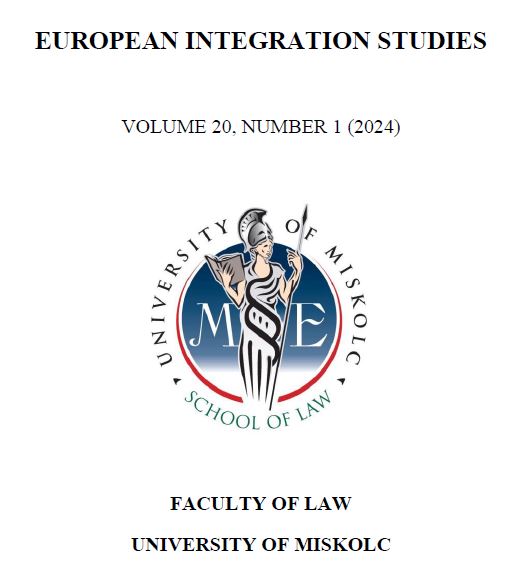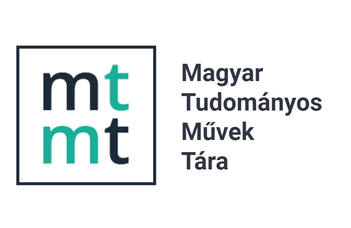From them to us: How developmental trauma is significant in the life of children in asylums
DOI:
https://doi.org/10.46941/2024.1.10Kulcsszavak:
children in asylum, trauma conscious, developmental trauma, education system.Absztrakt
This study aims to enhance understanding of the trauma backgrounds of children in asylums and to offer possibilities for healing. Studying chronic or developmental trauma is a relatively new and growing field of psychology which offers important changes of perspective and possibilities of treatment. It is a valuable theoretical framework in the urgent global issue of refugees and asylum seekers. The concept explains how the inside scars of fleeing one’s home or of other harmful events, often determines children’s future. These scaring events can occur in these children’s home country, or during their trip, but even in the countries where they arrive, where we are in a way responsible for them. Beyond the moral obligation to help these vulnerable children, I argue that in the long term, it is in our best interests to offer them help by professionals trained in trauma consciousness in all the institutions or system where they are handled. Education systems for instance could be key to the acculturalisation and integration process. Schools provide the basis for the right to education, structure, and community to provide knowledge and healing through relationships for the benefit of future generations. Raising consciousness and leaving hostile attitudes and rhetoric behind can be beneficial to newcomers but also to natives. I argue that we should replace the concept of differentiating, and talking about several isolated groups like natives, refugees, migrants etc. and begin to accept that in the perspective of the future, we are parts of the same “group” as a society.
Hivatkozások
Abrahams, L. (2009) ‘Treating Traumatized Children: risk, resilience and recovery’, Journal of Child and Adolescent Mental Health, 21(1), pp. 81–82; https://doi.org/10.2989/jcamh.2009.21.1.12.814.
Arvidson, J., Kinniburgh, K. M., Howard, K., Spinazzola, J., Strothers, H., Evans, M. E., Andres, B., Cohen, C., Blaustein, M. (2011) ‘Treatment of complex trauma in young children: Developmental and cultural considerations in application of the ARC Intervention Model’, Journal of Child & Adolescent Trauma, 4(1), pp. 34-51; https://doi.org/10.1080/19361521.2011.545046.
Association, A. P. (2022) Diagnostic and Statistical Manual of Mental Disorders: DSM-5-TR.
Chak, F. M. (2018) ‘Europe’s Dystopia: The Exploitation of Unaccompanied and Separated Child Refugees’, Policy Perspectives, 15(3), pp. 7–28.
Crisp, J. (1996) ‘Meeting the needs and realizing the rights of refugee children and adolescents: from policy to practice’, Refugee Survey Quarterly, 15(3), pp. 1–24; https://doi.org/10.1093/rsq/15.3.1-b.
Dangmann, C., Dybdahl, R., Solberg, Ø. (2022) ‘Mental health in refugee children’, Current Opinion in Psychology, 48, p. 101460; https://doi.org/10.1016/j.copsyc.2022.101460.
De Deckker, K. (2018) ‘Understanding trauma in the refugee context’, Journal of Psychologists and Counsellors in Schools, 28(2), pp. 248–259; https://doi.org/10.1017/jgc.2018.12.
Dieterich-Hartwell, R., Koch, S. C. (2017) ‘Creative Arts Therapies as Temporary Home for Refugees: Insights from Literature and Practice’, Behavioral Sciences, 7(4), p. 69; https://doi.org/10.3390/bs7040069.
East, P. L., Gahagan, S., Al-Delaimy, W. K. (2017) ‘The impact of refugee mothers’ trauma, posttraumatic stress, and depression on their children’s adjustment’ Journal of Immigrant and Minority Health, 20(2), pp. 271–282; https://doi.org/10.1007/s10903-017-0624-2.
Evans, C., Graves, K. (2018) ‘Trauma among children and legal implications’, Cogent Social Sciences, 4(1), p. 1546791; https://doi.org/10.1080/23311886.2018.1546791.
Gohara, M. (2018) ‘In Defense of the Injured: How Trauma-Informed Criminal Defense Can Reform Sentencing.’, SSRN Electronic Journal, [Online]. Available at: https://papers.ssrn.com/sol3/papers.cfm?abstract_id=3232243 (Accessed: 15 December 2024).
Guruge, S., Butt, H. (2015) ‘A scoping review of mental health issues and concerns among immigrant and refugee youth in Canada: Looking back, moving forward’, Canadian Journal of Public Health, 106(2), pp. e72–e78; https://doi.org/10.17269/cjph.106.4588.
Koehler, C., Schneider, J. (2019) ‘Young refugees in education: the particular challenges of school systems in Europe’, Comparative Migration Studies, 7(1), pp. 1-20.; https://doi.org/10.1186/s40878-019-0129-3.
Mogyorósy- Révész, Z. (2021) Érzelemszabályozás a gyakorlatban. Budapest: Kulcslyuk Kiadó.
Perry, B. D., Szalavitz, M. (2010) Born for love: Why Empathy Is Essential and Endangered. Harper Collins.
Perry, B. D. (2019) A ketrecbe zárt fiú és más történetek egy gyermekpszichiáter jegyzetfüzetéből. Budapest: Park Kiadó.
Sellars, M. (2019) Educating Students with Refugee and Asylum Seeker Experiences. Leverkusen-Opladen: Verlag Barbara Budrich; https://doi.org/10.3224/84742289.
Sim, R. (2016) ‘Into the mind of the refugee: Unpacking modern refugee mental health’, Harvard International Review, 37(4).
Sullivan, A., Simonson, G. R. (2016) ‘A Systematic Review of School-Based Social-Emotional Interventions for Refugee and War-Traumatized Youth’, Review of Educational Research, 86(2), pp. 503–530; https://doi.org/10.3102/0034654315609419.
Taylor, S., Debelle, G., Modi, N. (2016) ‘Child refugees: the right to compassion’, BMJ, i6100; https://doi.org/10.1136/bmj.i6100.
Van Der Kolk, B. (2020) A test mindent számontart. Budapest: Ursus Libris.
Van der Kolk, B. A. (2005) ‘Developmental Trauma Disorder: Toward a rational diagnosis for children with complex trauma histories’, Psychiatric Annals, 35(5), pp. 401–408.
Woodhouse, S., Ayers, S., Field, A. P. (2015) ‘The relationship between adult attachment style and post-traumatic stress symptoms: A meta-analysis’, Journal of Anxiety Disorders, 35, pp. 103–117; https://doi.org/10.1016/j.janxdis.2015.07.002.





